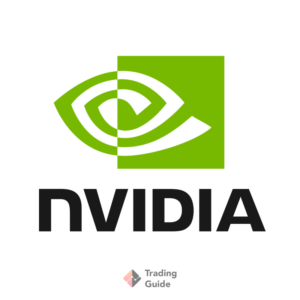OpenAI, known for its innovative AI projects such as the ChatGPT chatbot, is at the forefront of the AI revolution. While direct investment in OpenAI is not an option, there are strategic ways to capitalize on the AI success story. This guide will simplify the process, examining investment opportunities in major companies like Microsoft, Infosys, and Nvidia. Additionally, we’ll explore the option of investing in AI-focused exchange-traded funds (ETFs).
When will OpenAI IPO?

Despite its meteoric rise and widespread acclaim, OpenAI has no plans for an initial public offering (IPO) in the near future. CEO Sam Altman, citing the company’s robust financial position and concerns over potential limitations on AI development, has emphasized the company’s commitment to staying private. Microsoft’s additional $10 billion investment further solidifies OpenAI’s financial standing, making an IPO less imminent.
Indirect Investment Strategies
1. Microsoft (MSFT)

Microsoft emerges as a primary gateway for investors seeking exposure to OpenAI’s success. So, Microsoft, the big tech company, put $1 billion into OpenAI in 2019, and now they’re teaming up even more. OpenAI’s smart AI models are getting plugged into Microsoft’s Azure cloud platform, which is like a supercomputer that helps run lots of cool applications. This partnership isn’t just about cloud stuff; it’s also making its way into Microsoft 365 Copilot, Bing, and other tools that people use to get things done. Microsoft has a bunch of tech in different areas like cloud services, gaming, and quantum computing, making it a strong choice for investors interested in the potential of AI.
2. Infosys (INFY)

Infosys, an early investor in OpenAI, has strategically embraced an “AI-first strategy.” Utilizing its investment in OpenAI, the company has introduced the Topaz platform, characterized as a collection of services, solutions, and platforms with a primary focus on AI. This platform facilitates rapid data analysis for clients, showcasing Infosys’ dedication to staying at the forefront of advancements in artificial intelligence technologies. While Infosys didn’t explicitly mention OpenAI in its announcements, the company’s focus on generative AI aligns with the advancements made by OpenAI’s models. For investors seeking exposure to AI-driven services and solutions, Infosys presents a compelling choice.
3. Nvidia (NVDA)

Nvidia, although not a direct investor in OpenAI, has experienced a surge in demand for its chips due to the broader AI megatrend. In the fiscal third quarter of 2024, Nvidia’s revenue soared by 206%, driven by a remarkable 279% year-over-year increase in data center revenue. The company’s CEO, Jensen Huang, emphasized the transition from general-purpose to accelerated computing and generative AI as key drivers of this growth. Nvidia’s graphics processing units (GPUs) are ideal for powering AI applications, making the company a major beneficiary of the AI revolution.
Financial Performance of OpenAI
While OpenAI does not publicly disclose its financial statements, reports indicate that the company incurred losses of around $540 million in 2022, doubling from the previous year. Despite these losses, OpenAI has rapidly increased its monthly revenue run rate to over $100 million, signifying robust revenue growth. The company’s transition from a nonprofit to a hybrid capped-profit structure allows investors and employees to participate in profits up to a defined cap.
Considerations for Investors
If you’re looking to invest in the success of OpenAI without going directly to them, check out how generative AI might affect different areas. Big companies like Microsoft, Infosys, and Nvidia are worth looking at because they have different strengths in their own markets. Also, keep an eye on other companies like Salesforce and Atlassian that focus on AI – they could be good opportunities if you want to be part of the progress in AI.
ETFs as a Diversified Approach
For investors looking for a diversified approach without selecting individual stocks, exchange-traded funds (ETFs) focused on AI and machine learning provide an attractive option. Notable AI ETFs include the Global X Robotics & Artificial Intelligence ETF, ROBO Global Robotics and Automation Index ETF, iShares Robotics and Artificial Intelligence ETF, and First Trust Nasdaq Artificial Intelligence ETF. These ETFs offer a broad exposure to companies at the forefront of the AI revolution.
FAQs
OpenAI is an artificial intelligence research laboratory focused on developing safe and beneficial AI. While it is not publicly traded, there are indirect investment opportunities through companies associated with OpenAI. Investing in AI can be attractive due to its potential impact on various industries.
Regularly follow OpenAI’s official communications, industry news, and financial reports of companies collaborating with OpenAI. Joining relevant online communities and forums can also provide valuable insights and discussions.
It’s recommended to seek advice from a financial advisor before making any investment decisions. A financial advisor can assist in evaluating your risk tolerance, and financial objectives, and provide guidance in building a diversified portfolio that aligns with your goals.
Tax implications can vary based on your location and the specific investment. It’s crucial to consult with a tax professional who can provide guidance on any tax considerations associated with your AI-related investments.
The AI industry has shown significant growth in recent years, with increasing applications in various sectors. Nevertheless, prior performance does not guarantee future outcomes. Thoroughly analyze current market conditions before making investment decisions.
Conclusion
If you want to invest in the cool things happening with OpenAI but can’t do it directly, there are other smart ways. Look into companies like Microsoft, Infosys, and Nvidia – they’re deep into the world of AI. Also, check out AI-focused ETFs; they bundle together different AI-related investments. These options give you a chance to ride the wave of the AI revolution alongside OpenAI, even if you can’t invest in them directly. It’s like joining the team of companies leading the way in AI innovation for the long haul.




This hits the nail on the head for anyone who's been wondering how to get exposure to the OpenAI hype - Microsoft's deep integration makes the most sense as a proxy play, though I'm surprised they didn't mention the revenue-sharing dynamics more clearly.
Your blog is a treasure trove of valuable insights and thought-provoking commentary. Your dedication to your craft is evident in every word you write. Keep up the fantastic work!